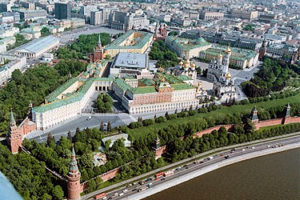On Russian studies [and Re: “Opportunities and Constraints of Authoritarian Modernisation: Russian Policy Reforms in the 2000s”]

Subject: On Russian studies
Date: Fri, 12 Aug 2016
From: Brian D Taylor <bdtaylor@maxwell.syr.edu>
Thanks again for all you do with JRL. It’s a very valuable resource.
I would like to say, though, that “real Russian studies” are not particularly rare. If you ask social scientists who study Russia, they could point you to many detailed analyses of practically every topic under the sun. Obviously academic articles are not appropriate for JRL on a regular basis – they serve a different purpose and appeal to different audiences. But there are a lot of examples of serious scholarship out there.
You also will not be surprised to hear that among academics there are also disagreements about what counts as “balanced” analysis. Compare to Willerton, for example, this recent article by 2 Russian political scientists – Gel’man is arguably one of the most successful Russian political scientists of his generation. Look at his Google Scholar profile to see how much he has written and how well-cited he is. I am pasting in the text of the article, but I can send you the PDF with the tables and references if you like also. I choose this one simply because it is on a similar topic to the Willerton article. Gel’man also had a piece in the first issue of Russian Politics that came out earlier this year.
Best wishes,
Brian
[Professor, Political Science, Syracuse University]
—-
Europe-Asia Studies
2 February 2016
Opportunities and Constraints of Authoritarian Modernisation: Russian Policy Reforms in the 2000s
By Vladimir Gel’man & Andrey Starodubtsev
[Full text here: tandfonline.com/doi/full/10.1080/09668136.2015.1113232]
Abstract
The essay explores why some socio-economic reforms are successful and others are not and why and how the political regime and its institutions affect policy outcomes and the implementation of a ‘narrow’ programme of authoritarian modernisation [….]
[* * * note from JRL web editor: JRL web home truncating appended article text extensively; entire article at tandfonline.com/doi/full/10.1080/09668136.2015.1113232]
Conclusion: are reforms impossible?
* * *
Are successful reforms possible within the framework of an authoritarian modernisation project? A positive answer should be heavily marked with major caveats. If a certain reform is the top political priority of the strong and authoritative head of the state, and if a team of reformers has the opportunity to be insulated from the major interest groups, and if it implements policy changes quickly and they bring immediate positive results, then this reform is possible even under conditions of poor quality of governance and inefficient institutional design. This combination of favourable conditions is quite rare, and this is why the success story of tax and budgetary reforms in the 2000s remains an exception. […] the insulation of reformers from influence of interest groups is risky […] it does not ensure the quality of policy proposals and their implementation: the costs of errors may increase. […] authoritarian modernisation projects are often implemented by officials who are not interested in reforms. […] under electoral authoritarianism ‘the pockets of efficiency’ are full of holes […] the failure of some policy reforms can challenge the whole project of authoritarian modernisation by undermining the president’s incentive to continue major changes. […] after the failure of the ‘monetisation of social benefits’, the notion of reform became taboo among the Russian leadership [….] replaced by ‘national projects’ […] only an increase in financing without significant structural changes. [….]
[…] the Russian experience of authoritarian modernisation represented in the wake of policy reforms in the 2000s demonstrates that political leaders, even those […] interested in implementing policy changes, cannot repeat the experience of [… others]. Those who relied upon an inefficient bureaucracy as a basis of their own winning coalitions [] are rarely ready to risk a potential political imbalance in the name of possible developmental success. […] their reform strategy is often inconsistent, and the incentives to preserve the status quo are often overwhelming. In the best case, authoritarian modernisation can result in a set of temporary and partial policy measures. In the worst case, it turns into a demagogical smokescreen for the preservation of authoritarian power. […] this was the case of Russian experience in the early twentieth-first century: initial efforts of policy reforms that were launched soon after 2000, later on turned into words without deeds against the background of aggravation of authoritarian trends in the country []. Yet, there are no guarantees that democratisation will create favourable conditions for socio-economic reforms either; rather, it will provide new challenges. We suggest, however, there is no reason to believe that policy reforms under the conditions of an electoral authoritarian regime and poor quality of the state can bring great fruits.
